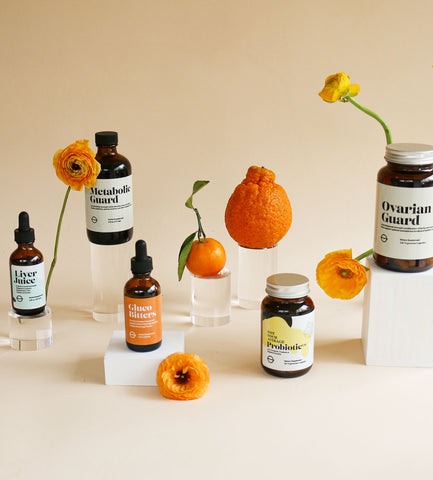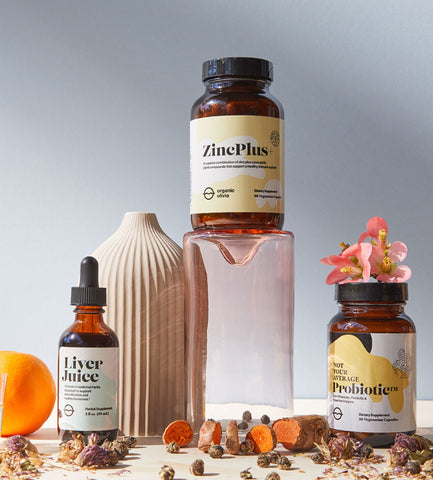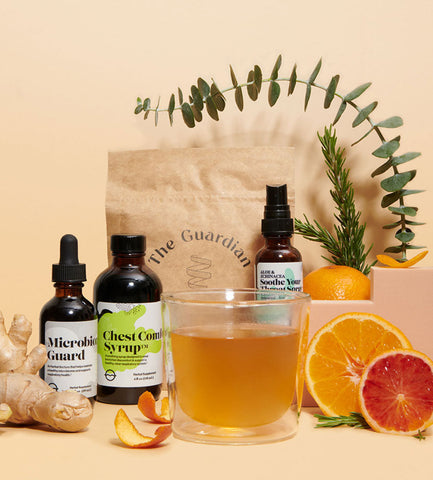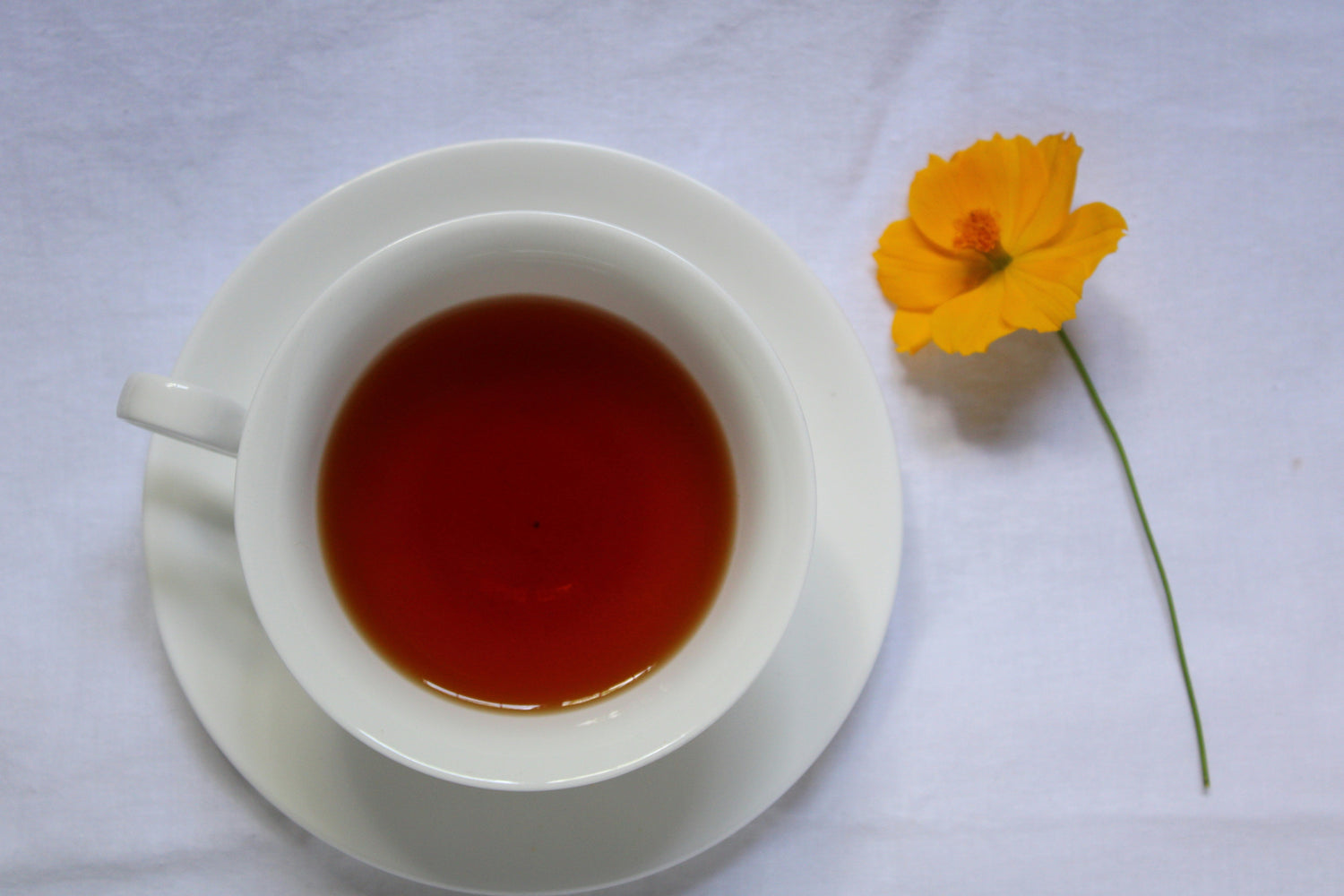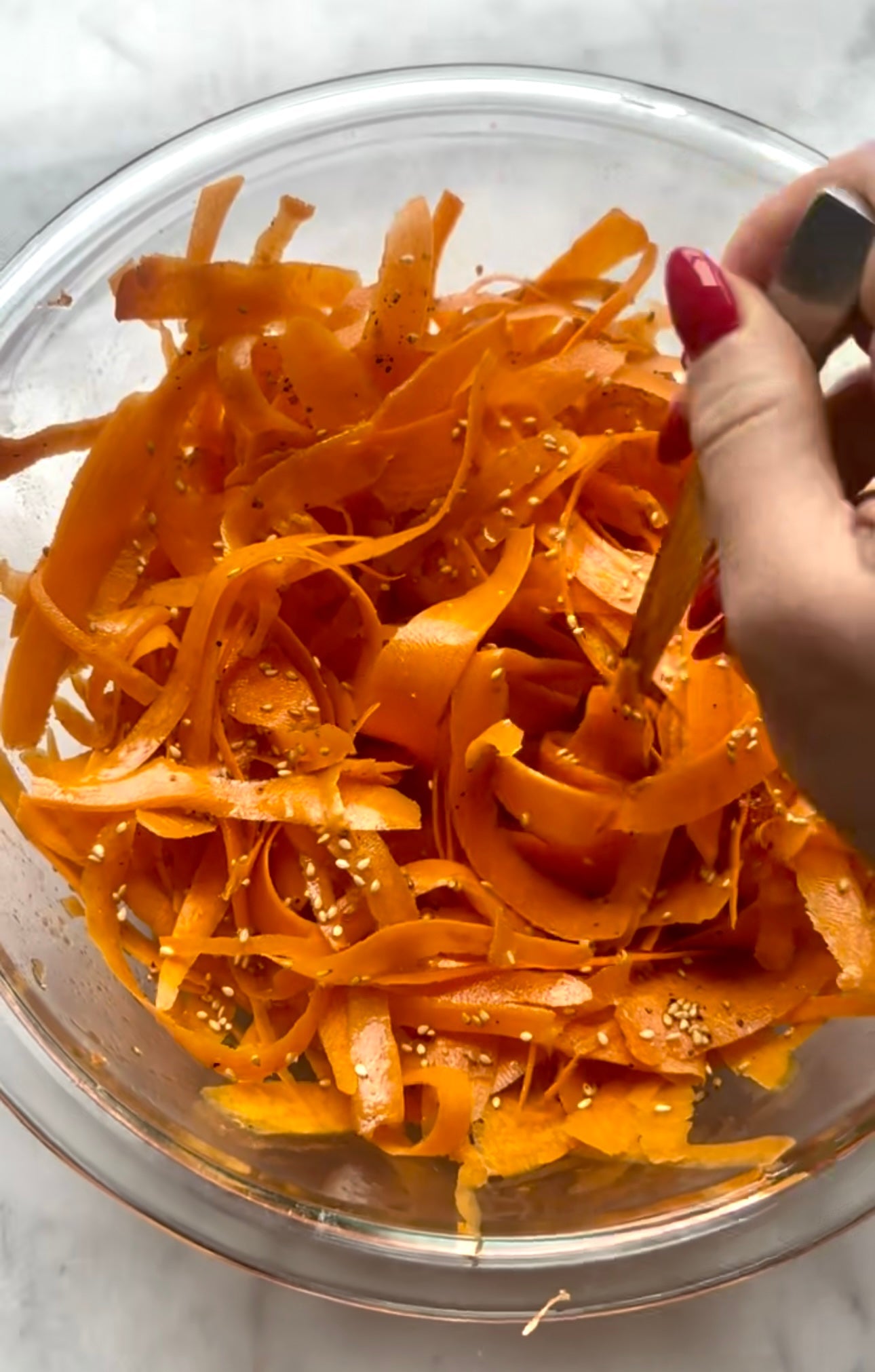When it comes to nutrition, most mothers-to-be focus on pregnancy requirements without placing much emphasis on the before or after. But in Traditional Chinese Medicine (TCM), the year leading up to conception, and the months following birth, are considered just as vital as the pregnancy itself. This guide combines evidence-based recommendations from recent scientific literature with ancient TCM principles to offer a truly holistic roadmap for nourishment during these pivotal times.
Preconception: Laying the Groundwork
In TCM, preparing for conception is like tending to your garden bed before planting. Instead of tossing in seeds and hoping for the best, you enrich the soil with amendments like compost to give future plants the strongest start possible. In other words, this season of life is all about building the reserves and establishing a deeply nourished foundation. TCM emphasizes Jing (your vital essence) as the root of fertility, growth, and development. To protect and strengthen our Jing, it’s essential that we support the Kidneys, Spleen, and blood through intentional nutrition and rest.
Warm, cooked, and easily digestible foods like soups, stews, broths, and congees help optimize digestion and preserve Jing. In that same vein, cold or raw foods are discouraged during this time, as they can dampen your digestive fire. Focus on deeply nourishing foods that enrich the Blood and tonify Qi, such as:
-
Ghee
-
Full fat dairy
-
Walnuts and black sesame seeds
-
Seaweed
-
Cooked leafy greens
-
Root vegetables and slow cooked grains
-
Eggs
The Mediterranean Style Diet
While TCM offers an energetic and elemental approach, modern science also confirms the juicy benefits of nutrient dense eating, especially the Mediterranean Diet. Rich in colorful vegetables, fruits, whole grains, legumes, oily fish, nuts, lean proteins, and poly or monounsaturated fatty acids (especially olive oil and avocado oil), this style of eating is consistently linked with improved female fertility outcomes and a lower risk of ovulation disorders. A 2023 systematic review of 11 studies found that adopting a Mediterranean diet was significantly associated with improved live birth rates and pregnancy rates in women struggling with infertility (1). It is also shown to reduce the risk of gestational diabetes, preterm birth, gestational hypertension (or high blood pressure), and preeclampsia (2). And, women undergoing IVF who ate a Mediterranean Diet had significantly faster embryo development and improved embryo quality scores (3, 4).
Key Nutrients for Preconception
Choline is critical for egg quality, methylation, and early embryo development. It’s found in pasture-raised eggs (particularly the yolks), liver, and soybeans.
Iron is needed to build blood and support healthy cycles and ovulation. Organ meats and dark poultry are fantastic sources of heme iron, while cooked leafy greens (paired with vitamin C) and blackstrap molasses are some of the best plant-based sources of non-heme iron.
B vitamins (especially B12 and folate) are needed for methylation, hormone detox, and red blood cell production. You can find these B vitamins in beef liver, lentils, nutritional yeast, and dark leafy greens.
Omega-3 fatty acids (EPA and DHA) are essential for oocyte quality and maternal health as they support hormone signaling, reduce inflammation, and enhance folicular health. You can get a healthy dose of Omega 3s from fatty fish like sardines, mackerel, wild salmon, anchovies, or flax and chia seeds if you are plant-based.
Antioxidants – Oxidative stress, or an imbalance between damaging free radicals and antioxidants, has a significant impact on your reproductive health. During preconception, elevated oxidative stress can damage egg cells, disrupt ovulation, impair endometrial lining, and even affect early embryo development and implantation. Therefore, antioxidants (like vitamin C, vitamin E, CoQ10, polyphenols, and selenium) help to neutralize these free radicals and protect reproductive tissues.
-
Vitamin C: citrus, strawberries, bell peppers, broccoli, tomatoes
-
Vitamin E: almonds, sunflower seeds, spinach, avocado
-
Beta carotene and carotenoids: carrots, sweet potatoes, kale, pumpkin, butternut squash, and other orange foods!
-
CoQ10: salmon, tuna, organ meats (especially heart), whole grains
-
Selenium: brazil nuts, seafood, eggs, whole grains
-
Zinc: pumpkin seeds, chickpeas, cashews, oysters, eggs
-
Polyphenols: blueberries, blackberries, pomegranate, dark chocolate, green tea
-
Glutathione precursors: asparagus, avocado, spinach
Postpartum: Rebuilding
While preconception nutrition centers around laying a nourished foundation, postpartum nutrition is all about restoration. In TCM, the month after giving birth is known as “zuo yue zi” or “sitting month”. It’s a sacred window of rest and replenishment where warmth, nourishment, and stillness are prioritized. After birth, Blood and Qi are depleted and the body is wide open both physically and energetically. Without proper care, this can lead to cold invasion, stagnation, and long term deficiencies.
Warming Foods

During this tender window, warming and easily digestible foods are once again recommended to rebuild strength and restore balance. These TCM inspired staples are ideal for new mothers:
-
Congee with ginger and jujube
-
Sweet potatoes with cinnamon and ghee
-
Sesame date balls
-
Stewed pears with cardamom
-
Bone broth with mushrooms
Minerals
And, since the demands of pregnancy, birth, and breastfeeding can deplete a mother’s mineral stores, mineral replenishment is another (often overlooked) cornerstone of postpartum recovery. Some of the telltale signs of a mineral deficiency during the postpartum period include fatigue, mood swings, hair loss, and slow healing. Thus, it’s critical to get ample iron, calcium, magnesium, zinc, iodine, and selenium. To rebuild:
-
Hydrate with electrolytes or trace mineral drops
A revitalizing herbal mineral tincture for an extra boost of hydration and energy.* STAR HERB: Nettle
Mineral Boost
-
Sip on mineral-rich herbal infusions (nettle, oatstraw, alfalfa, red clover, red raspberry)
-
Salt your food with sea salt
-
Eat organ meats and oysters
-
Enjoy bone broth
-
Continue a prenatal or postnatal multivitamin
Galactagogue Herbs

For breastfeeding mamas, certain herbs (called galactogouges) can support healthy milk production while also offering additional nourishment and calming benefits. Some of our favorite time-tested galactagogues include:
-
Fenugreek – stimulates milk production and supports digestion
-
Fennel – relieves gas (for mom and baby!) and supports lactation
-
Goat’s rue – promotes milk flow and supports glandular tissue
-
Shatavari – a deeply nourishing adaptogen for hormonal balance and milk production
-
Blessed thistle – used alongside fenugreek to boost supply
-
Moringa – rich in minerals and protein to support milk volume
-
Barley – contains polysaccharides that stimulate prolactin




